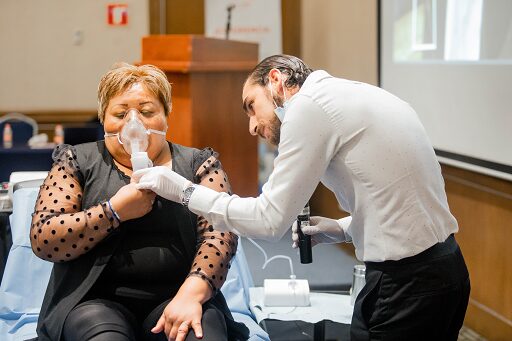Living with an autoimmune disease can be a daily battle, as the body’s immune system mistakenly attacks its healthy tissues and organs. If you or someone you know is struggling with the challenges of an autoimmune condition, then you’re in the right place. Stem Cell Therapy for Autoimmune diseases is a promising option for them.
In this blog post, we will explore one innovative and promising treatment option that has garnered significant attention in recent years: stem cell therapy for autoimmune diseases.
What is an Autoimmune Disease?
Autoimmune diseases are a complex group of conditions where the body’s immune system goes haywire and starts attacking its healthy cells, tissues, or organs. It’s like having an overzealous security guard who mistakenly identifies innocent bystanders as threats and launches an attack against them.
There are more than 80 known autoimmune diseases, including rheumatoid arthritis, lupus, multiple sclerosis, type 1 diabetes, and Crohn’s disease. Each condition has its unique targets within the body. For instance, in rheumatoid arthritis, the immune system attacks the joints; in lupus, it affects multiple organs such as the kidneys and skin.

The exact cause of autoimmune diseases remains largely unknown. However, scientists believe that genetics play a role along with environmental factors like infections or exposure to certain substances. In some cases, hormonal imbalances or chronic stress can also trigger these conditions.
One frustrating aspect of autoimmune diseases is their unpredictable nature. Symptoms may come and go in flares or worsen gradually over time.
Diagnosis of autoimmune diseases often involves a combination of medical history evaluation, physical examinations by healthcare professionals specialized in immunology/rheumatology/etc., and laboratory tests to analyze blood samples for specific antibodies associated with each condition.
What are Stem Cells?
You may have heard the term before, but what exactly are they? Well, stem cells are special types of cells that have the remarkable ability to develop into different cell types in our bodies. They serve as a sort of internal repair system, constantly dividing and replenishing other cells.
These unique cells can be found throughout our bodies, from embryos to adults. The most potent type of stem cell is known as an embryonic stem cell, which is derived from human embryos at an early stage of development. These particular stem cells have the potential to become any type of cell in the body.

Adult stem cells, on the other hand, are more specialized and can only give rise to certain types of cells. They exist in various tissues and organs such as bone marrow or fat tissue. Although not as versatile as embryonic stem cells, adult stem cells still play a crucial role in repairing damaged tissues and maintaining normal bodily functions.
In recent years, scientists have been harnessing the power of these incredible cellular entities for medical purposes through a process called stem cell therapy. By isolating and culturing specific types of stem cells in a lab setting, researchers can generate large quantities of these precious resources for therapeutic use.
But how does this relate to autoimmune diseases? Well, it turns out that some autoimmune conditions involve faulty immune responses where the body’s immune system attacks healthy tissues and organs. Stem cell therapy offers hope by potentially resetting or modulating this aberrant immune response through their regenerative properties.
Stem Cell Therapy for Autoimmune Diseases: Treatment
Traditional treatments often focus on suppressing the immune response, but they may come with side effects and limited efficacy. This is where stem cell therapy comes into play.
Stem cells are unique because they have the remarkable ability to differentiate into various types of cells in the body. They can also self-renew, allowing them to continuously produce new cells. In the context of autoimmune diseases, stem cell therapy involves using these versatile cells to modulate or regulate an overactive immune system.

One approach is through hematopoietic stem cell transplantation (HSCT). In this procedure, doctors collect healthy stem cells from either your bone marrow or a donor’s bone marrow and then transplant them back into your body after undergoing high-dose chemotherapy or radiation to eliminate abnormal immune responses.
Another method involves using mesenchymal stem cells (MSCs), which have anti-inflammatory properties. MSCs can help suppress inflammation caused by autoimmune diseases while promoting tissue repair and regeneration. These adult stem cells can be obtained from various sources such as bone marrow or adipose tissue.
Research studies have shown promising results in treating autoimmune diseases like multiple sclerosis, rheumatoid arthritis, lupus, Crohn’s disease, and type 1 diabetes using stem cell therapy. However, more clinical trials are still needed to fully understand its long-term safety and effectiveness.
Conclusion | Stem Cell Therapy for Autoimmune Diseases
Stem Cell Therapy for Autoimmune Diseases has emerged as a treatment option for those who suffer from these complex disorders. Through the regenerative power of stem cells, researchers and medical professionals have been able to provide relief and potentially even reverse the effects of autoimmune diseases.
While there is still much research to be done in this field, early studies and patient testimonials show great promise. Stem cell therapy offers hope for individuals with autoimmune diseases who may have exhausted other treatment options or are seeking alternatives to long-term medication use.
Dr. Cesar Fonseca is a known voice in the Stem Cell Therapy industry, learn more about medical tourism in Mexico.
